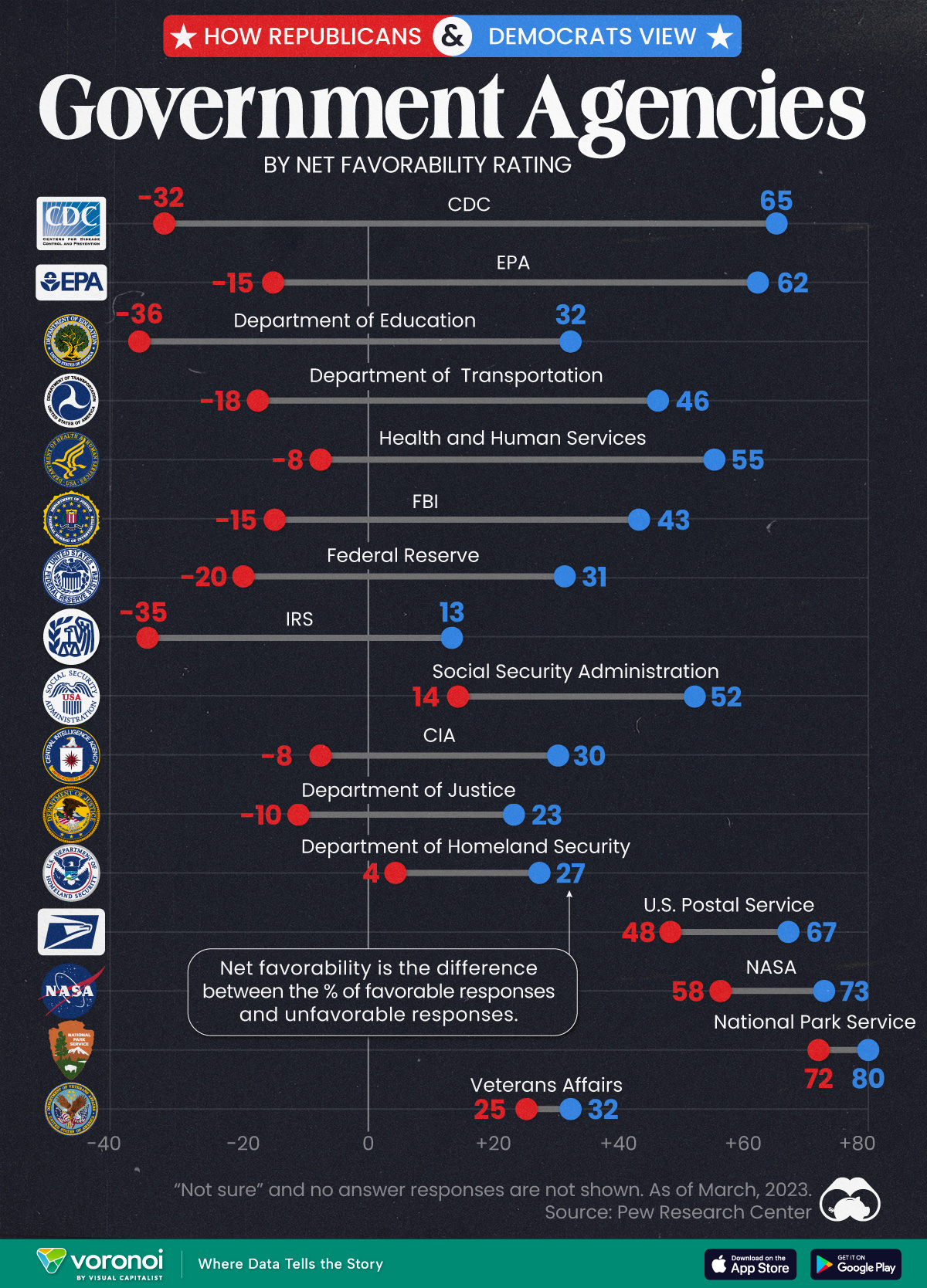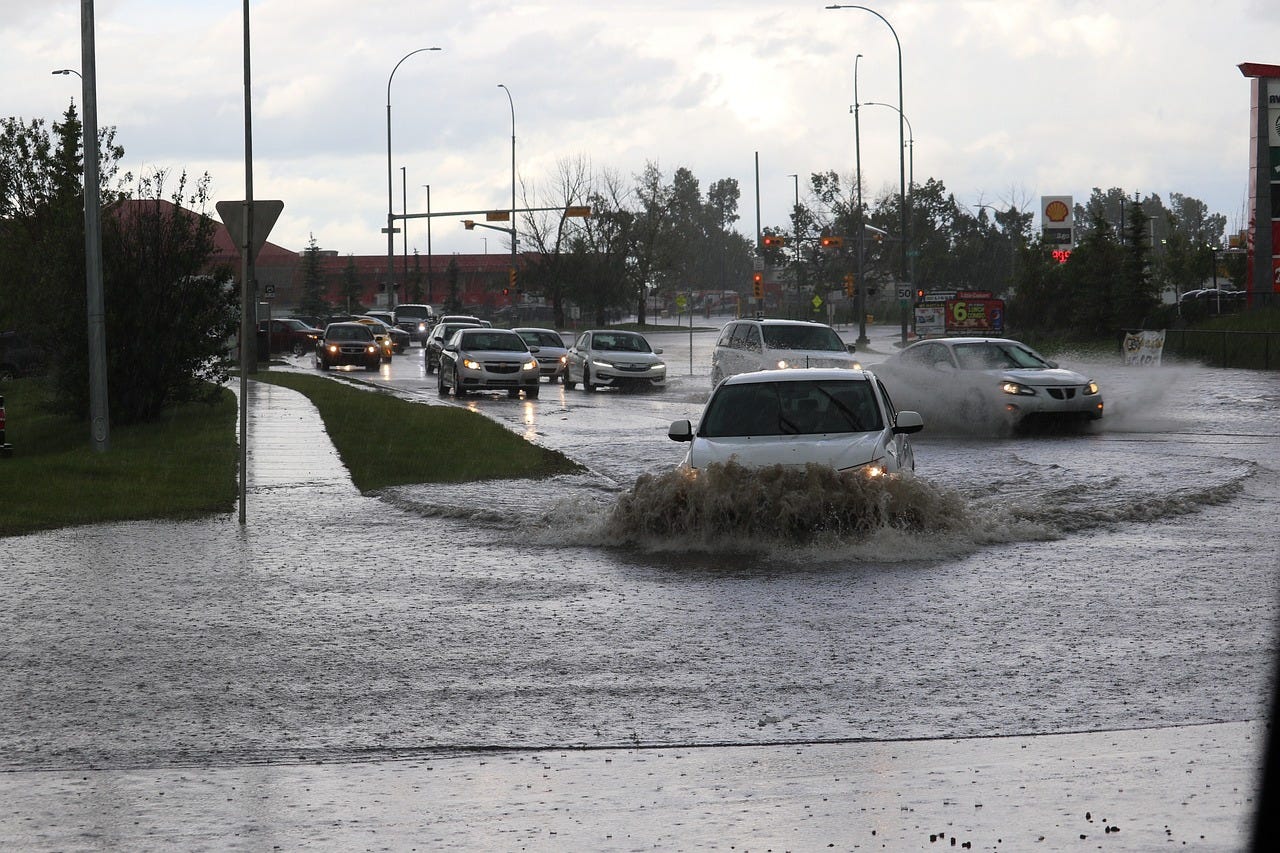In Between Times 6-25-2024
The Grand Bargain Project, Voters in swing states survey, Most liked govt agencies, AI needs nukes?, Tracking global coal usage
Join us tomorrow (Online, 12:30 EST) at The Leadership Circle where Sol Erdman, President at The Center for Collaborative Democracy will be joining us for spirited discussion. Please contact elizabeth@inthistogetheramerica.org to get registered.
Do “swing state” voters share your priorities?
A handful of states and their voters will determine the 2024 election. Are voters in Virginia, Nevada, or Wisconsin concerned with the same issues you are?
(From The Washington Post)
The Washington Post and George Mason University’s Schar School polled this small but influential slice of the electorate to better understand their priorities and to get an idea of how many votes are truly up for grabs in November.
Want to know how your views on the election compare with those of the “Deciders?” Take our quiz below to find out. Your answers are confidential and won’t be collected.
Click here to take the quiz.
How do partisans feel about different government agencies?
No one seems to like the IRS very much.
Joe Manchin: I’m putting my PAC’s money where bipartisanship is
Manchin is staking a spot right at the center of the American body politic. He has said goodbye to the Democratic Party and is now charting an Independent path post-Senate.
(From CNN)
Throughout my time in the US Senate, I have always tried to bring everyone to the negotiating table — such as in passing the Bipartisan Infrastructure Law, the Electoral Reform Act and common-sense gun-safety legislation — no matter their political beliefs to find common-sense solutions to America’s greatest challenges, including our soaring national debt, the high cost of living for families across the country and the crisis at our southern border.
But it’s become clear after my 14 years in Washington, DC, that our national politics are broken and both parties are finding it more difficult to compromise and find any common ground. It’s not just me who sees this as a problem: According to a 2023 Pew Research Center survey, 86% of Americans agreed that “Republicans and Democrats are more focused on fighting each other than on solving problems” is a “good description” of our political system.
We need a major overhaul of our extreme partisan system in which the Democratic and Republican parties have a duopoly on high-dollar donors, online fundraising and huge checks from political action committees (PACs).
Click here for the article.
Americans’ views of government’s role: persistent divisions and areas of agreement
But nearly everybody doesn’t want Social Security touched.
(From Pew)
A large majority of voters (80%) – including 82% of Biden supporters and 78% of Trump supporters – say that in thinking about the long-term future of Social Security, benefits should not be reduced in any way.
However, Biden supporters are more likely than Trump supporters to say Social Security should cover more people with greater benefits.
46% of Biden supporters favor expanding Social Security coverage and benefits, compared with 28% of Trump supporters.
Click here for the article.
AI companies say they need more nuclear energy to fuel their data centers
In the months and years to come it is very likely that nuclear will play a larger role in the global energy mix. Once modular nuclear becomes a reality at scale, and some say it already can be, the industry is set to take off, again.
Study: Protecting just 1.2 percent of land as nature preserves could prevent majority of extinctions
I think we can all agree that the goal should be to preserve much more. But this is an interesting study.
(From The Hill)
Protecting just over one percent of land as nature preserves could prevent most extinctions, according to new research published on Monday.
The research in the Frontiers in Science journal proposed preventing further extinctions by protecting areas it labeled as Conservative Imperatives, which it defined as “currently unprotected sites that contain rare, threatened, and narrow-range endemic species.”
The research listed 16,825 unprotected sites.
“These sites should be prioritized for conservation action over the next 5 years as part of a broader strategy to expand the global protected area network,” the research stated.
This seems like a doable goal. Between government created parks and private reserves 1.2% of land feels attainable.
Click here for the article.
From Madagascar to India: The conservation sites crucial to preventing 'mass extinction'
New law to provide Florida homebuyers with more transparency on flood history
When I was right out of college I was a property and casualty insurance underwriter. My job was to look at the various risks associated with an area and to then decide if the risks were too great. My area of responsibility was Hampton Roads Virginia (Norfolk/Virginia Beach), an area prone to hurricanes and flooding generally.
What always annoyed me was the fact that large areas of flood plain were often developed even though we KNEW that within thirty years or so a significant flood would come. I had to identify these homes and consider whether my company wanted to insure them. Often we couldn’t.
It seems total folly to build on a known floodplain but we still do it all the time. There are some areas that should just be no-go zones for development from a pure risk perspective. One wouldn’t build a house on the edge of a periodically active volcano. Why would one build a house on top of what should be a swamp which will eventually flood within twenty years?
(From Inside Climate News)
For the first time, Florida home sellers will have to disclose certain aspects of a property’s flood history, under legislation Gov. Ron DeSantis signed into law this week.
The measure is seen as an important step toward addressing growth and development in risky areas, an issue that has gained prominence since Hurricane Ian dropped historic amounts of rain here in 2022, causing widespread flooding. Ian was the costliest hurricane in state history and third-costliest on record in the United States, after Katrina in 2005 and Harvey in 2017.
Before this law passed, Florida, uniquely vulnerable to sea level rise, precipitation changes and intensifying storms, had been one of 18 states where no flood disclosure was required as part of a home transaction.
Click here for the article.
Check out The Global Coal Plant Tracker
It’s an easy to use interactive map. Notice China and India. Lots of carbon coming from that part of the world.
EVENT
June 27 @ 2:00 pm – 3:15 pm EDT
Conducting a Political Risk Assessment
Corporate Political Responsibility Taskforce
Location: Online
In this critical election year, executives in every business function are faced with unprecedented risks and uncertainties related to an increasingly polarized and volatile US political landscape, from supply chain disruption to worker conflict, specific geographic exposures, and even political violence.
During our April 10 event, 2024 Election Readiness and Corporate Political Responsibility, the Erb Institute’s CPR Taskforce offered Six Readiness Strategies for a Proactive, Principled Approach to help leaders prepare for these electoral, governing, and societal risks, drawing on the Erb Principles for Corporate Political Responsibility.
Now, we are delighted to welcome Lauren Caplan of the Leadership Now Project for a mini-workshop to help leaders explore the first of those strategies, Conducting a Political Risk Assessment, using Leadership Now’s Corporate Guide to Navigating U.S. Political Risk.





















